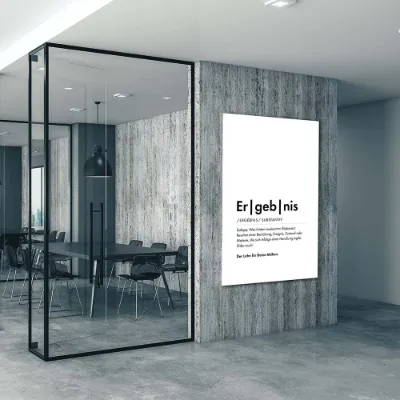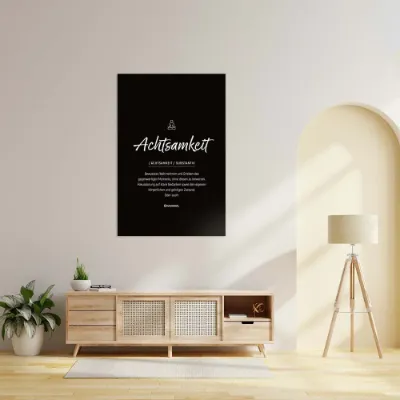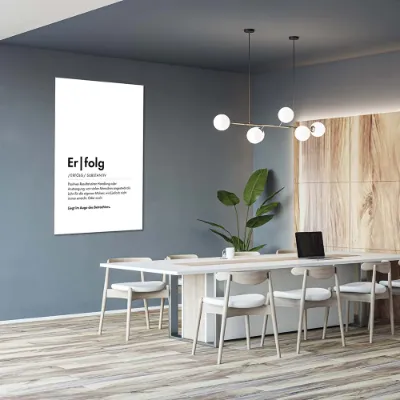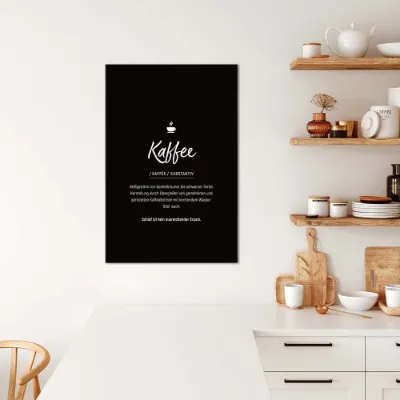… oder wie Sie sich als Keynote Speaker, Trainer oder Coach strategisch als Experte positionieren. Kolumne von Monika Paitl
Nun auch in englischer Sprache weiter unten im Text.
Please scroll down for the English version.
Vorige Woche haben wir mit Twitter ein weiteres Instrument erschlossen, über das Sie Ihre Experteninhalte kommunizieren können. Eine andere Möglichkeit, dies zu tun, ist Facebook. Sehr oft höre ich große Vorbehalte zu Facebook, viele meiner Gesprächspartner sagen mir „ach, was man da alles erlebt, mit der Privatsphäre und so, da lass‘ ich lieber die Finger davon“. Und diese Aussagen sind durchaus berechtigt. Ich habe Gründe, diese Kolumne „Facebook, ja aber“ zu nennen. Das heißt jedoch nicht, dass ich Ihnen davon abrate, sich des Tools Facebook zu bedienen, um Ihren Status als „DER Experte für .. „ weiter zu festigen. Facebook hat viele Vorteile, wenn es darum geht, direkt breitflächig zu kommunizieren und in den Dialog mit anderen zu treten.
Auf Facebook gibt es meiner Meinung nach nur zwei Möglichkeiten, sinnvoll unterwegs zu sein. Erstens, man benutzt es als Portal, um mit seinen Freunden, den echten, die man wirklich kennt, in Verbindung zu bleiben. In diesem Fall schliesst man sein Profil „hermetisch“ ab, gibt kaum nach außen – für Nicht-Freunde – sichtbare Informationen frei und akzeptiert nur Freundschaftsanfragen von Menschen, die man schon kennt und wirklich als seine Freunde bezeichnet. Das ist durchaus in Ordnung, sinnvoll und spannend im privaten Bereich. Wollen Sie Facebook jedoch rein professionell nutzen, um sich als Experte bekannt zu machen, ist eine andere Vorgangsweise erforderlich. Sie schaffen quasi Ihr „offizielles Profil“, auf dem Sie durchaus auch einige private, ausgewählte Informationen geben und öffnen es für einen sehr großen Freundeskreis. Freundeskreis bedeutet in diesem Fall auch bisher Unbekannte. Freundschaftsanfragen von obskuren Menschen oder solchen, die Ihnen nur etwas verkaufen wollen, müssen Sie ja trotzdem nicht positiv beantworten. Bei dieser Art von offenem Facebook Profil ist es natürlich noch wichtiger, die Inhalte sorgfältig zu wählen, genau darauf zu achten, was in der Rubrik „Was machst Du gerade“ oder „Info“ und vor allem „Fotos“ aufscheint. Facebook ist ein wenig eine Gratwanderung, weil es – wie ich finde – noch wichtiger ist als auf Twitter, den echten Dialog herzustellen.
Ich finde, man muss sich weiter vorwagen als auf Twitter, noch öfter Direktansprache zeigen, mehr Kommentare abgeben auf anderen Seiten…
Ich empfehle, wenn Sie Facebook beruflich nutzen, Ihre Kontakte und Freunde an Ihre Pinnwand schreiben zu lassen. Alles andere macht keinen Sinn. Sie sind der Experte, die Expertin, Sie stellen Ihr Expertenwissen über das Tool Facebook zur Verfügung. Sie sollten Ihren Dialogpartnern und Menschen, die sich für Sie interessieren, dann die Möglichkeit geben, deren Meinung kundzutun. Das birgt natürlich immer die Gefahr, dass jemand Unsinniges, Unhöfliches oder Unpassendes auf Ihrer Seite hinterlässt.
Deswegen ist es auf Facebook noch wichtiger als auf Twitter, regelmäßig zu monitoren, was sich auf Ihrem Profil so tut. Zweimal Vormittags und zweimal Nachmittags und nochmals am Abend ist so meine – ja, sehr zeitaufwendige – Norm, die ich auch allen meinen Kunden empfehle. Sollte jemandem ein Beitrag nicht gefallen und ein unangebrachter Kommentar vorhanden sein, können Sie antworten und reagieren. Wie wichtig die permanente Präsenz von Moderatoren ist, hat vergangene Woche das extreme Beispiel der Deutschen Bahn gezeigt, die „unschuldig“ ihr Chef-Ticket bekanntmachen wollte und unwillentlich eine veritable Büchse der Pandora öffnete. Von Tierschützern angefangen über enttäuschte Kunden beschwerte sich jeder plötzlich über alles. Am meisten wurde das Fehlen eines Moderators zu Beginn seitens der Bahn auf der Facebook-Seite angeprangert. Im Falle der Bahn hatten sich viele Emotionen empörter Nutzer über lange Zeit aufgebaut, die dann plötzlich ein Portal hatten, auf dem sie ihrem Frust Luft machen konnten. Wichtige Erkenntnis daraus: Wenn man eine Tür aufmacht, ist es sehr wahrscheinlich, dass jemand durchgeht. Ich denke, gemäß dem Gesetz der Anziehungskraft erhält man auch auf Twitter und Facebook nur das zurück an positiven oder eben negativen Energien, die man vorher selber erschafft. Frage hier: Soll das bedeuten, dass nur Unternehmen oder Organisationen mit perfekter Reputation Social Media und speziell Facebook erwägen können? Nein, sicher nicht. Aber die Kommunikationsprofis innerhalb der Unternehmen müssen seismographisch die potentiellen Issues erkennen und abfedern, bevor sie zu einer Krise werden. Eine gewisse Vorsicht ist auf jeden Fall immer angebracht. Ein weiteres Beispiel für die Eigendynamik, die eine Unternehmensseite auf Facebook erhalten kann, ist das Beispiel von Gap, die aufgrund der ausschließlich negativen Kommentare zu ihrem neuen Logo die Logoumstellung zurücknehmen mussten. Facebook bietet Kunden also eine sehr „machtvolle“ Plattform, sich einzubringen.
Dies soll Sie aber nicht davon abhalten, auf Facebook tätig zu sein. Es ist – richtig angewandt – ein sehr starkes Instrument, auf Sie und Ihr Portfolio als Experte hinzuweisen. Diese Macht, die auf die Bahn und Gap so brutal niederprasselte, kann ja sehr positiv ausfallen und genutzt werden. Wenn Sie es schaffen, mit Ihren „Freunden“ einen wirklichen Dialog aufzubauen, einen Austausch und eine Kommunikation zu starten, dann haben Sie ebenfalls Kommentare auf Ihrer Pinnwand, aber positive, wertschätzende, die wieder weitere Freunde anziehen.
Was unterscheidet nun die Inhalte von Twitter und Facebook? Durch die „Hilfsinstrumente“ wie Hootsuite und Tweetdeck und viele andere mehr ist es einfach, gleichzeitig auf Twitter und Facebook identische Inhalte zu posten. Das können Sie schon mal machen, im Falle von Zeitmangel – ich tue es selbst hin und wieder, wenn nicht für alle Kanäle individuell Zeit bleibt. Aber es sollte nicht die Norm sein. Facebook benötigt mehr und direktere Inhalte. Sie haben ja auch zeichenmässig viel mehr Platz, personalisierte Informationen zu geben, Fragen zu stellen, offen zum Dialog aufzufordern. Besonders, wenn Sie als Experte ein Buch herausbringen und bekannt machen wollen, ist eine eigene Facebook-Seite für das Werk sehr zu empfehlen. Dort können Sie Leseproben einstellen, über Rezensionen berichten, zu Dialogen über den Inhalt auffordern und Gewinnspiele und Verlosungen durchführen. Das Geben und dann erst Nehmen-Prinzip von Twitter sollte sich auf Facebook verstärkt fortsetzen. Ich konstatiere in der letzten Zeit immer mehr Menschen, die sofort, wenn Sie eine Freundschaftsanfrage senden, in Gruppen einladen, auf Produkte hinweisen und aktiv Sales-Aktivitäten starten. Ich ignoriere so etwas. Wer aber mit einem interessanten Profil und nützlichen Informationen an mich herantritt, der erhält meine Aufmerksamkeit. Natürlich wollen wir im Endeffekt alle auf unsere Expertise hinweisen, aber das sollte generell und auch auf Facebook immer mit Fingerspitzengefühl geschehen.
Scheuen Sie also vor Facebook nicht zurück, es kann Ihnen viel geben. Interessante Kontakte und Dialoge sowie Insights in spannende Themen und einen hohen Bekanntheitsgrad. Aber, eben mit ein klein wenig Vorsicht und Respekt …
Das nächste Mal geht es um „Social Media – ein Ausblick“.
Über Monika Paitl:
Monika B. Paitl ist Inhaberin von communications9, eine auf PR und Management für deutsche und internationale Keynote Speaker, Trainer und Coaches spezialisierte PR-Agentur. communications9 verbindet gemäss dem Motto „linking the speaking world“ die Welt der Sprecher, Trainer und Coaches mit der der Medien und Unternehmen. Monika B. Paitl gründete nach Jahren in der Automobil- und Elektronikindustrie ihre eigene Agentur und bringt ihre internationalen Erfahrungen in den Bereichen Presse, Events und Weiterbildung ein. Neben klassischer PR ist Monika B. Paitl auch Expertin für Social Media-PR.
———————————————————————————————-
English Version
Facebook, yes, but ….
Facebook is another tool to develop your expert status. However, I often experience comments like „I hear so many negative things about the privacy issues, I rather prefer not to be there … „. These concerns are not totally unjustified. I have reasons to choose the headline „Facebook, yes, but“ for today‘s column. This does not mean I advice you against Facebook, it just means that some caution is necessary.
On Facebook you can either open a very restricted private profile to the one and only purpose to communicate with your already existing friends all over the world. You only accept persons you already know as your friends and nobody who is not your friend can see anything interesting about your profile.
This makes total sense for your private contacts. If ever you wish to use Facebook on a professional basis to make yourself known as „THE Expert for“, you need to proceed differently. You create your official profile with carefully chosen details about your private life and open it to a wide variety of friends. Of course you can always decline the friendship of strange people or those who want to sell you something immediately. With such an open profile you need to choose your content and your postings very carefully.
On the other hand you need to be open enough to install real communication and to start interesting dialogues. And to participate in the dialogue by commenting other Facebook pages and postings.
If you want to use Facebook professionally you have to enable your friends to post on your page. You are the expert, you talk about your expert knowledge on Facebook, so you have to enable your communication partners to share their point of view with you. Of course this brings the danger of unreasonable, stupid or unsuitable comments on your Facebook page. This is why you have to monitor your page regularly and several times a day to always be aware of what is happening and if something is happening. Yes, this is time consuming, but nobody ever said correctly applied Social Media would be done within 10 minutes a day … If you monitor you can react and answer eventual postings. The recent bad example of Deutsche Bahn on Facebook clearly shows the necessity of a moderator or host being present all the time. They just wanted to promote a new kind of ticket and accidentally opened Pandora‘s box on Facebook by providing a platform where people could express themselves. Facebook Users started complaining about the general unfriendliness, unpunctuality and general lack of service of Deutsche Bahn. The absence of a moderator to react immediately to those complaints made things only worse. However, in this example emotions of travelers had been flying high for quite a while and exploded when suddenly being provided with a platform to express them. I strongly believe that according to law of attraction on social media one only gets back the kind of positive or negative input which has been sent out before. Another example of the power of Facebook is Gap. After having received mostly extremely negative and disappointed comments about their logo change the company had to recall the new log and decided to continue with the previous one. A clear and loud victory for customer voices!
I hope all these examples will not make you renounce on Facebook for good. Correctly and cautiously used it is indeed a very strong way to strengthen your image as THE expert. The power and energy which fell so violently on Deutsche Bahn und Gap can be very positively canalized and used. If you succeed to really install a dialogue with your Facebook friends, to have true exchange and an ongoing communication process, then you will receive highly appreciative comments on your Facebook page and therefore attract new friends.
What about content on Facebook? There are tools enabling the identical posting of content on Twitter and Facebook at the same time. You can do that from to time to be more efficient in case of work overload.
However, it should not be the rule. Facebook needs more personalized content. You have more characters available for your messages, you can ask questions and invite to hear opinions. Facebook is also a particularly interesting way to promote your new book. You can post excerpts, report about the book‘s latest reviews, invite friends to comment the book, organize a lottery. Facebook, as well as Twitter, is about Giving. Recently I receive many invitations to join groups or pages, with a very direct sales approach. I tend to ignore those. If on the other hand you approach others gently with an interesting profile and useful content, you will get attention. Of course our general goal is to demonstrate our expert status.
However, always with the appropriate instinct and tact. Please, do not be afraid of Facebook. It can give you so much. Interesting contacts and inspiring dialogues, insights and an increased brand awareness.
But, do not forget to be extremely careful and respectful once on the platform …
Next time: Social Media – an outlook
About Monika Paitl:
Monika B. Paitl ist the owner and founder of communications9, based in Munich, Germany.
communications9′ core business is PR and Management for German and international Keynote-Speakers, Trainers and Coaches. The Agency’s motto is „linking the speaking world“. Its mission is to connect speakers, trainers and coaches with the media and interested companies. Monika B. Paitl founded communications9 after long years of an international career in the car- and electronics industry in France and USA. Today her experience in global PR, media relations, events, training and education serves the German and international speaking community. Monika B. Paitl is furthermore an experienced Social Media expert.





